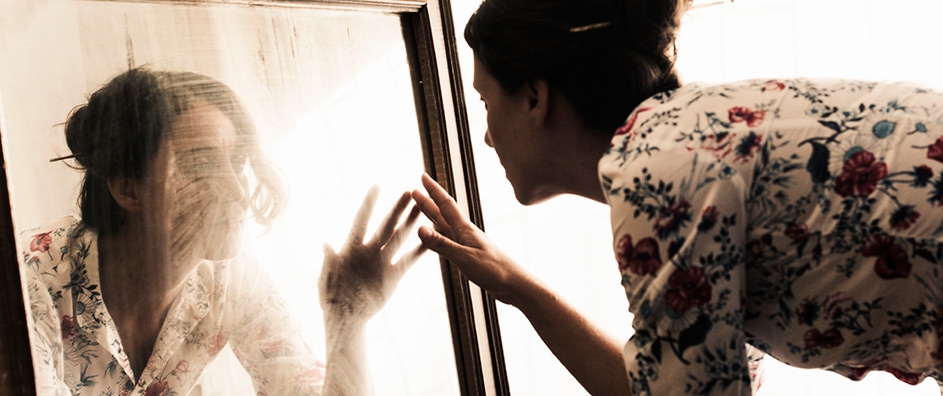The views expressed in our content reflect individual perspectives and do not represent the authoritative views of the Baha'i Faith.
Your purpose in life is to find your purpose and give your whole heart and soul to it. – Gautama Buddha
Now there’s a truly Zen statement—and not from one of his disciples, but from the Buddha himself. “Your purpose in life is to find your purpose…” Sounds pretty paradoxical, doesn’t it?
When you think about it deeply, though, this Zen koan makes sense. We strive, all our lives, to seek and then accomplish what we judge to be most valuable. The Buddha asks us to search for a real purpose, and once we find it, to give it everything we have.
Have you found your purpose in life?
You know, your purpose—your aim, intention, goal, design, your fondest hope. Do you have an ultimate direction, an objective, an aspiration? Like a boat on the ocean, do you have a heading?
In other words, what’s the point of your life?
Many of us get so caught up in the necessary tasks of life and survival that we don’t give much deep thought to its greater goal. We go to work or school, pay the rent or the mortgage, eat, sleep, take care of our families and try to maintain our health. The relentless nature of life—its sheer dailyness—makes us focus on simply getting through the struggles and obstacles, trying to maintain our equilibrium, and moving on to the next task.
So most people, it sometimes seems, go through life just to survive, just to satisfy their instincts and urges, just to meet the needs of the physical body:
If a man is successful in his business, art, or profession he is thereby enabled to increase his physical wellbeing and to give his body the amount of ease and comfort in which it delights. All around us today we see how man surrounds himself with every modern convenience and luxury, and denies nothing to the physical and material side of his nature. But, take heed, lest in thinking too earnestly of the things of the body you forget the things of the soul: for material advantages do not elevate the spirit of a man. Perfection in worldly things is a joy to the body of a man but in no wise does it glorify his soul.
It may be that a man who has every material benefit, and who lives surrounded by all the greatest comfort modern civilization can give him, is denied the all important gift of the Holy Spirit.
It is indeed a good and praiseworthy thing to progress materially, but in so doing, let us not neglect the more important spiritual progress, and close our eyes to the Divine light shining in our midst.
Only by improving spiritually as well as materially can we make any real progress, and become perfect beings. It was in order to bring this spiritual life and light into the world that all the great Teachers have appeared. They came so that the Sun of Truth might be manifested, and shine in the hearts of men, and that through its wondrous power men might attain unto Everlasting Light. – Abdu’l-Baha, Paris Talks, p. 62.
“Take heed,” Abdu’l-Baha counsels us, “lest in thinking too earnestly of the things of the body you forget the things of the soul…” Our modern societies seem pretty focused on thinking too earnestly of the things of the body, don’t they? Everywhere we go, we see the idealization of the physical. In advertisements, on movie screens, online and in magazines and even on the posters at the bus stop, we’re continually barraged by images of physical perfection, as if it were the only aim of life. The media screams “Youth! Beauty! Sculpted muscles! Flowing hair! Glowing skin! Rock-hard abs!” and we buy it.
There’s a term for that tendency: the cult of the body. Our physical bodies do require a great deal of constant attention—food and water and exercise and rest and clothing and shelter and health care—but when we overdo it, and “think too earnestly” about our physical needs, we lose the more important and lasting realities of life. When the cult of the body takes over, it becomes an obsession, a constant concern that can turn into a quasi-religious compulsion. Rather than keeping the physical self in perspective, and seeing our health as a way to maintain our bodies so our minds and souls can do good things, some fitness-fixated people now see physical and material perfection as the ultimate goal of life.
When that happens, that cult of the body has taken over.
Of course, any consistent effort you put into your body—weightlifting, spending many hours at the gym, practicing for a sport or running hundreds of miles—will pay off in physical and mental dividends. The problem? Those dividends don’t last. Our bodies all have expiration dates built into our DNA. At some point, our bodies will age and decline. We all discard these physical outer shells and move on to a more spiritual existence. No one has ever managed to get around that rock-hard law of existence.
Abdu’l-Baha’s wise advice to endeavor to become perfect beings by “improving spiritually as well as materially” applies here. By creating a healthy, intelligent balance between our physical and spiritual needs, we can truly advance, and take the first step toward finding our greatest purpose in life—which we’ll explore in this short series of essays.
Next: Seeking Perfection—at the Gym
You May Also Like
Comments

















https://en.wikiquote.org/wiki/Gautama_Buddha
Your work is to discover your work and then with all your heart to give yourself to it.
Loose translation (“rendering”, “interpretation”) of verse 166 of the Dhammapada by Thomas Byrom, 1976.
Alternatively rendered by Anne Bancroft as:
“Your work is to find out what your work should be and not to neglect it for another’s. Clearly discover your work and attend to it with all your heart.”.
More faithful translations:
Let one not neglect one’s own welfare for the sake of another, however great. Clearly understanding ...one’s own welfare, let one be intent upon the good.
("Attavagga: The Self" (Dhp XII), translated from the Pali by Acharya Buddharakkhita, verse 166, 1985)
Don\'t sacrifice your own welfare for that of another, no matter how great. Realizing your own true welfare, be intent on just that.
("Attavagga: Self", by Thanissaro Bhikkhu, verse 166, 1997)
Lots of other dubious and missateubuted quotes as well as some real quotes can be found.